A.F. Stewart's Blog, page 114
November 17, 2010
Pen Name or No
Another guest joins the blog today, author John Betcher. He stops by on his virtual book tour to give tips on using a pen name:
Pen Name or No
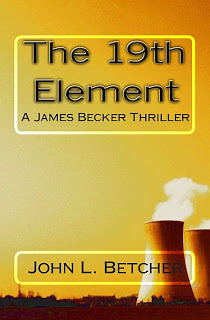 Today's post has to do with an issue I have recently confronted in my writing -- whether to use a pen name instead of my real one.
Today's post has to do with an issue I have recently confronted in my writing -- whether to use a pen name instead of my real one.
A pen name . . . or nom de plume . . . as some say, is simply a made up name used in place of your real name as author of your work. There are reasons why one might want to do this. And reasons why one might not want to.
Why you may want to use a pen name:
Here are several popular reasons to use a pen name instead of your real one.
-- You want to change your gender. In certain genres, romance for instance, it seems that female authors are better received. This is particularly true if your main character is a female. And in other genres, thrillers perhaps, there is a preponderance of male characters. So you may want your author gender to be male. (These are just examples. I'm not trying to pick a fight.) If you're writing in a genre where readers prefer authors of a certain gender, maybe you want to switch yours if your God-given version isn't right for the task.
-- If this is your first book, you may wish to preserve your privacy by using a pen name. We all know that once our personal information is spread across the internet, it is widely available to anyone with nefarious intent. So privacy might be another consideration.
-- If you are already known for writing in a different genre, or appearing in a different medium, you may consider a nom de plume either: 1) to avoid confusing your readers as to the type of book they are buying; or 2) to preserve an alternate image for your previous work. St. Paul newspaper columnist, John Camp, writes as John Sandford, presumably for this reason.
-- If your real name is very common (eg. John Smith), or you share a name with another author, you might consider a pen name so your fans can more easily find your work on a search engine, or to avoid confusion with the other author.
-- If you want your author name to have a certain pizazz, you could spice it up a bit. "Rocky Savage" may sound more masculine to some than "Tracy Ween."
-- Or you may have one of those given names that might be male or female (like Stacy, or Sean, or Jamie). And perhaps you want to make your gender clear for the readers.
Why you may not want to use a pen name:
-- For many self-published writers, their personal name recognition (at least by friends, relatives and community) may be their best initial marketing tool. You might not want to lose that advantage by using a pen name. Community is a great place to start building your following.
-- If you have already established some name recognition with your other writing pursuits (columns, short stories, etc.), you may want to extend your "brand" to your new works. Using your real name as author of your new book(s) is a great way to do this. Hopefully, any goodwill you have established in your previous writings will transfer to your new audience. This is called "leveraging goodwill" in the marketing world. And lots of big companies use it. At one point the Gerber Company was known only for its quality baby food. But they have leveraged the the goodwill of their brand into baby clothing lines, and other areas as well. Why should we think a food packager can make clothing? Who knows . . . but leveraging works.
-- If your name is recognizable in some non-writing circle -- eg. you're a sports or entertainment figure -- using your real name can be a huge advantage. How many people would have bought "Chelsea, Chelsea, Bang, Bang" if the author weren't a famous comedian?
Well . . . those are a few reasons I have come up with.
I'm currently trying to balance name recognition, with the potential to confuse (or even alienate) my audience, as I approach publication of a new novel in a completely different genre from my "Beck" suspense/thriller series. I'll be happy to let you know later what I decided to do.
If you have other reasons for using a pen name or not, maybe you'd like to leave a comment.
Thanks, Anita, for allowing me to share your blog . . . and your readers. All the best to everyone!
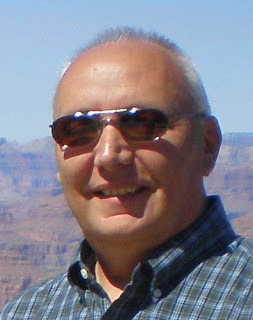 About the Author:
About the Author:
John L. Betcher is a University of Minnesota Law School graduate and has practiced law for more than twenty-five years in the Mississippi River community of Red Wing, Minnesota. He possesses substantial first-hand knowledge of the Prairie River Nuclear Plant's real world counterpart, as well as Red Wing's airport and the flight rules around the nuke plant.
In addition to The 19th Element, he has published a second book in the "Beck" series entitled, The Missing Element, A James Becker Mystery. The second book is available everywhere.
The author has also been a long-time supporter and coach of youth volleyball in and around Red Wing and has authored three feature articles for Coaching Volleyball, the journal of the American Volleyball Coaches Association. His most recent article was the cover story for the April/May, 2009 Issue.
His book on volleyball coaching philosophies entitled The Little Black Book of Volleyball Coaching is available at http://www.johnbetcher.com/ and at amazon.com.

Pen Name or No
 Today's post has to do with an issue I have recently confronted in my writing -- whether to use a pen name instead of my real one.
Today's post has to do with an issue I have recently confronted in my writing -- whether to use a pen name instead of my real one. A pen name . . . or nom de plume . . . as some say, is simply a made up name used in place of your real name as author of your work. There are reasons why one might want to do this. And reasons why one might not want to.
Why you may want to use a pen name:
Here are several popular reasons to use a pen name instead of your real one.
-- You want to change your gender. In certain genres, romance for instance, it seems that female authors are better received. This is particularly true if your main character is a female. And in other genres, thrillers perhaps, there is a preponderance of male characters. So you may want your author gender to be male. (These are just examples. I'm not trying to pick a fight.) If you're writing in a genre where readers prefer authors of a certain gender, maybe you want to switch yours if your God-given version isn't right for the task.
-- If this is your first book, you may wish to preserve your privacy by using a pen name. We all know that once our personal information is spread across the internet, it is widely available to anyone with nefarious intent. So privacy might be another consideration.
-- If you are already known for writing in a different genre, or appearing in a different medium, you may consider a nom de plume either: 1) to avoid confusing your readers as to the type of book they are buying; or 2) to preserve an alternate image for your previous work. St. Paul newspaper columnist, John Camp, writes as John Sandford, presumably for this reason.
-- If your real name is very common (eg. John Smith), or you share a name with another author, you might consider a pen name so your fans can more easily find your work on a search engine, or to avoid confusion with the other author.
-- If you want your author name to have a certain pizazz, you could spice it up a bit. "Rocky Savage" may sound more masculine to some than "Tracy Ween."
-- Or you may have one of those given names that might be male or female (like Stacy, or Sean, or Jamie). And perhaps you want to make your gender clear for the readers.
Why you may not want to use a pen name:
-- For many self-published writers, their personal name recognition (at least by friends, relatives and community) may be their best initial marketing tool. You might not want to lose that advantage by using a pen name. Community is a great place to start building your following.
-- If you have already established some name recognition with your other writing pursuits (columns, short stories, etc.), you may want to extend your "brand" to your new works. Using your real name as author of your new book(s) is a great way to do this. Hopefully, any goodwill you have established in your previous writings will transfer to your new audience. This is called "leveraging goodwill" in the marketing world. And lots of big companies use it. At one point the Gerber Company was known only for its quality baby food. But they have leveraged the the goodwill of their brand into baby clothing lines, and other areas as well. Why should we think a food packager can make clothing? Who knows . . . but leveraging works.
-- If your name is recognizable in some non-writing circle -- eg. you're a sports or entertainment figure -- using your real name can be a huge advantage. How many people would have bought "Chelsea, Chelsea, Bang, Bang" if the author weren't a famous comedian?
Well . . . those are a few reasons I have come up with.
I'm currently trying to balance name recognition, with the potential to confuse (or even alienate) my audience, as I approach publication of a new novel in a completely different genre from my "Beck" suspense/thriller series. I'll be happy to let you know later what I decided to do.
If you have other reasons for using a pen name or not, maybe you'd like to leave a comment.
Thanks, Anita, for allowing me to share your blog . . . and your readers. All the best to everyone!
 About the Author:
About the Author:John L. Betcher is a University of Minnesota Law School graduate and has practiced law for more than twenty-five years in the Mississippi River community of Red Wing, Minnesota. He possesses substantial first-hand knowledge of the Prairie River Nuclear Plant's real world counterpart, as well as Red Wing's airport and the flight rules around the nuke plant.
In addition to The 19th Element, he has published a second book in the "Beck" series entitled, The Missing Element, A James Becker Mystery. The second book is available everywhere.
The author has also been a long-time supporter and coach of youth volleyball in and around Red Wing and has authored three feature articles for Coaching Volleyball, the journal of the American Volleyball Coaches Association. His most recent article was the cover story for the April/May, 2009 Issue.
His book on volleyball coaching philosophies entitled The Little Black Book of Volleyball Coaching is available at http://www.johnbetcher.com/ and at amazon.com.
Published on November 17, 2010 06:48
November 12, 2010
Push Forward and Write Your Tale
I have a guest today, stopping by as part of his virtual book tour. So please welcome, Joel M. Andre:
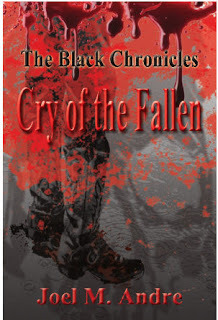 Push Forward and Write Your Tale by Joel M. Andre
Push Forward and Write Your Tale by Joel M. Andre
Everyone has a story to tell. There is little doubt about it. Over the course of the day, I have different friends and others pitching me story ideas. Why do they do it? Because it is a tale they want to read. For some, I will take the time to write a short story that they can read and the tale dies there. Other times, I suggest they write the story themselves.
Yes, it takes about 6 months to draft a book and to stumble through the editing process. In some cases, it can take longer. There are many factors that come into play. But this information isn't to discourage you. Instead it is there to inspire you. Think about the number of times you've read a book and were depressed at how it went. Often, you feel you can write a better story.
That motivation alone should push you into writing for a living. While you might never be able to live off your royalties from the book you draft, you will have something you can be proud of. This can be a tale that slowly takes off and then quickly becomes something people talk about years from now. You never know until you sit down and write it.
You might be surprised at how much of a stress reducer this can be for you as well. Many of us have stress and anxiety that can be taken away from writing stories. This can be your chance to escape to a work full of dragons, or fairies. There is no limitation to the world you create and that is the beauty of writing.
If you don't feel like you can write a whole novel, then take the steps and write a short story. Take it from start to finish and then read it back. This is your chance to revisit the world you've created and to find a place you'll love for a lifetime. You have the talent in you and I believe you have what it takes to write.
So push forward and tell your tale. Share it with the world if you like, or reserve it for yourself and perhaps a few friends. No matter what you do with it, there is one thing to keep in mind. When you are done, there is something to be proud. Most people will spend a lifetime saying they are going to write a book or story and you'll have done it. Keep that in mind and let it motivate you for telling your story.
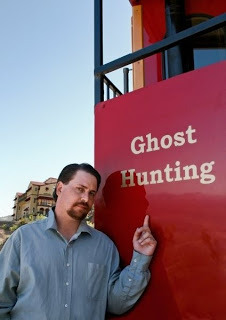 About the Author:
About the Author:
Joel M. Andre was born January 13, 1981. At a young age he was fascinated with the written word. It was at fourteen that Poe blew his mind, and Andre began to dabble with darker poetry.Between the years of 1999 and 2007 Joel was featured in various poetry anthologies and publications. In 2008 he released his first collection, Pray the Rain Never Ends .Knowing there was something deeper and darker inside of his soul, Joel decided to take a stab at commercialism. Releasing the dark tongue in cheek, A Death at the North Pole , created a dark world among the death of Kris Kringle. Ultimately providing a tale of redemption.
October of 2008 saw Joel release his second book, Kill 4 Me . A tale in which a woman is haunted by a vengeful spirit through text messages and instant messaging.
Taking some time off and doing a lot of soul searching, Joel took things in a new direction and dabbled in the Fantasy Genre with, The Pentacle of Light . The tale dealing with five major races battling for control of Earth, and the acceptance of their God.
Finally, after missing his detective Lauren Bruni, he released the book The Return in October 2009, this time moving the action from the North Pole and placing it in the small Arizona community he was raised in.
Andre's latest book is The Black Chronicles: Cry of the Fallen about a dead man who seeks revenge on the woman that tormented him in peaceful Northern Arizona.
Currently, he resides in Chandler, AZ.
You can visit his website at http://www.joelmandre.com/ .

 Push Forward and Write Your Tale by Joel M. Andre
Push Forward and Write Your Tale by Joel M. Andre Everyone has a story to tell. There is little doubt about it. Over the course of the day, I have different friends and others pitching me story ideas. Why do they do it? Because it is a tale they want to read. For some, I will take the time to write a short story that they can read and the tale dies there. Other times, I suggest they write the story themselves.
Yes, it takes about 6 months to draft a book and to stumble through the editing process. In some cases, it can take longer. There are many factors that come into play. But this information isn't to discourage you. Instead it is there to inspire you. Think about the number of times you've read a book and were depressed at how it went. Often, you feel you can write a better story.
That motivation alone should push you into writing for a living. While you might never be able to live off your royalties from the book you draft, you will have something you can be proud of. This can be a tale that slowly takes off and then quickly becomes something people talk about years from now. You never know until you sit down and write it.
You might be surprised at how much of a stress reducer this can be for you as well. Many of us have stress and anxiety that can be taken away from writing stories. This can be your chance to escape to a work full of dragons, or fairies. There is no limitation to the world you create and that is the beauty of writing.
If you don't feel like you can write a whole novel, then take the steps and write a short story. Take it from start to finish and then read it back. This is your chance to revisit the world you've created and to find a place you'll love for a lifetime. You have the talent in you and I believe you have what it takes to write.
So push forward and tell your tale. Share it with the world if you like, or reserve it for yourself and perhaps a few friends. No matter what you do with it, there is one thing to keep in mind. When you are done, there is something to be proud. Most people will spend a lifetime saying they are going to write a book or story and you'll have done it. Keep that in mind and let it motivate you for telling your story.
 About the Author:
About the Author:Joel M. Andre was born January 13, 1981. At a young age he was fascinated with the written word. It was at fourteen that Poe blew his mind, and Andre began to dabble with darker poetry.Between the years of 1999 and 2007 Joel was featured in various poetry anthologies and publications. In 2008 he released his first collection, Pray the Rain Never Ends .Knowing there was something deeper and darker inside of his soul, Joel decided to take a stab at commercialism. Releasing the dark tongue in cheek, A Death at the North Pole , created a dark world among the death of Kris Kringle. Ultimately providing a tale of redemption.
October of 2008 saw Joel release his second book, Kill 4 Me . A tale in which a woman is haunted by a vengeful spirit through text messages and instant messaging.
Taking some time off and doing a lot of soul searching, Joel took things in a new direction and dabbled in the Fantasy Genre with, The Pentacle of Light . The tale dealing with five major races battling for control of Earth, and the acceptance of their God.
Finally, after missing his detective Lauren Bruni, he released the book The Return in October 2009, this time moving the action from the North Pole and placing it in the small Arizona community he was raised in.
Andre's latest book is The Black Chronicles: Cry of the Fallen about a dead man who seeks revenge on the woman that tormented him in peaceful Northern Arizona.
Currently, he resides in Chandler, AZ.
You can visit his website at http://www.joelmandre.com/ .
Published on November 12, 2010 05:42
November 4, 2010
The Popular Culture of the Fantasy Genre
Our guest blogger today is Edward Stern, a regular contributer to
My Dog Ate My Blog
. He is delving into the fascinating subject of the fantasy genre and how it has melded into our current popular culture:
The Popular Culture of the Fantasy Genre
Today, fantasy is a popular and beloved genre with many loyal devotees. Featured in literature, television, and film, what was once considered a niche culture has now entered the mainstream with the popularity of the highly successful Lord of the Rings and Harry Potter books and films.
The roots of fantasy begin in ancient times. In mythology and early literature, it was not uncommon for popular legends to demonstrate many of the traits which now inspire fantasy today. In works as diverse as The Odyssey, Beowulf, and 1001 Arabian Nights, heroes on epic quests, warring gods, lengthy back stories, and beings not of the real world are all featured. Fantasy today is hugely influenced by mythology and folklore, and takes many of its tropes from the myths and legends of long ago times.
Medieval works were also a huge influence, as the Middle Ages-inspired setting is prevalent in many works, like Redwall and the aforementioned Lord of the Rings. The King Arthur tales and elements of Dante's Divine Comedy and even works by Shakespeare contained fantastical elements.
Still, many of these works took place in realms like ours but with fantastical creatures and occurrences. It was not until Victorian times that works were finally set in realms all their own, distinct from anything we know, and so provided the foundation for the fantasy genre as we know it. William Morris is considered by many to be the father of the genre for his pure fantasy tales set in a realm unlike reality. His works were largely influenced by the mythology of Norway and Scandinavia.
It was not until a century later that J.R.R. Tolkien created the Lord of the Rings and brought the genre to unprecedented heights. His extremely detailed, epic, and imaginative tales captured the imaginations of millions of readers and set a new bar for the quality of fantasy tales. The trilogy drew upon elements from mythology, folklore, and Medieval tales to create a timeless story of an epic quest.
Since Tolkien, the genre has become more popular and splintered into many different factions across the mediums of literature, television, and film. Fantasy has also seen more mainstream acceptance than ever with the Harry Potter books and films and the success of the Narnia films, among others. Fantasy is a thriving genre, one where imagination is the only limit.
Edward Stern is a guest blogger for My Dog Ate My Blog and a writer on Online Universities for Guide to Online Schools.

The Popular Culture of the Fantasy Genre
Today, fantasy is a popular and beloved genre with many loyal devotees. Featured in literature, television, and film, what was once considered a niche culture has now entered the mainstream with the popularity of the highly successful Lord of the Rings and Harry Potter books and films.
The roots of fantasy begin in ancient times. In mythology and early literature, it was not uncommon for popular legends to demonstrate many of the traits which now inspire fantasy today. In works as diverse as The Odyssey, Beowulf, and 1001 Arabian Nights, heroes on epic quests, warring gods, lengthy back stories, and beings not of the real world are all featured. Fantasy today is hugely influenced by mythology and folklore, and takes many of its tropes from the myths and legends of long ago times.
Medieval works were also a huge influence, as the Middle Ages-inspired setting is prevalent in many works, like Redwall and the aforementioned Lord of the Rings. The King Arthur tales and elements of Dante's Divine Comedy and even works by Shakespeare contained fantastical elements.
Still, many of these works took place in realms like ours but with fantastical creatures and occurrences. It was not until Victorian times that works were finally set in realms all their own, distinct from anything we know, and so provided the foundation for the fantasy genre as we know it. William Morris is considered by many to be the father of the genre for his pure fantasy tales set in a realm unlike reality. His works were largely influenced by the mythology of Norway and Scandinavia.
It was not until a century later that J.R.R. Tolkien created the Lord of the Rings and brought the genre to unprecedented heights. His extremely detailed, epic, and imaginative tales captured the imaginations of millions of readers and set a new bar for the quality of fantasy tales. The trilogy drew upon elements from mythology, folklore, and Medieval tales to create a timeless story of an epic quest.
Since Tolkien, the genre has become more popular and splintered into many different factions across the mediums of literature, television, and film. Fantasy has also seen more mainstream acceptance than ever with the Harry Potter books and films and the success of the Narnia films, among others. Fantasy is a thriving genre, one where imagination is the only limit.
Edward Stern is a guest blogger for My Dog Ate My Blog and a writer on Online Universities for Guide to Online Schools.
Published on November 04, 2010 07:45
October 28, 2010
Family Complexity: A Book Review of The House
My Review of The House by Anjuelle Floyd:
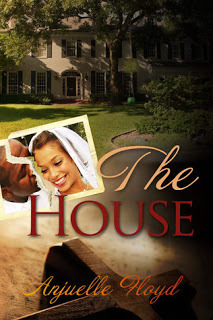 The House by Anjuelle Floyd is an intricate book that deals with the myriad emotions that come with family. It spirals through complicated relationships as they display across the pages in the wake of a tragedy.
The House by Anjuelle Floyd is an intricate book that deals with the myriad emotions that come with family. It spirals through complicated relationships as they display across the pages in the wake of a tragedy.
Anna is trying to divorce her husband, Edward, but he is fighting her over the disposition of their house. When he suddenly capitulates on everything, she discovers he is dying of cancer. This revelation comes as a shock and she halts the divorce and moves him back into their house. With this decision, Anna must face her buried feelings, her past and decide her future.
The House is a well-written novel with vibrant characters. The book deals at its heart with the most basic of subjects: family relationships. The complex interaction between the characters as they confront their history and the death that surrounds them is what keeps you reading. I can't say I always liked the characters, or agreed with their choices, but that's what made them compelling; they felt real and that is where the true strength of the novel lies.
The book isn't perfect, however. Its weak points fall in the plotline, which sometimes stretches itself a bit thin, especially toward the end. I felt there may have been a few too many convenient happenstances used; it felt, to me, as a bit unnecessary and sliding to improbable.
Still, overall The House is captivating, and I can recommend the novel as a satisfying read.
You find more on The House here: http://www.anjuellefloyd.com/books/the-house/
or check it out at Goodreads: http://www.goodreads.com/book/show/9535419-the-house
Ms. Floyd's website: http://www.anjuellefloyd.com/
Just a note: I received a free copy of this book for review.
Another of Ms. Floyd's books:
Keeper of Secrets: Translations of an Incident

 The House by Anjuelle Floyd is an intricate book that deals with the myriad emotions that come with family. It spirals through complicated relationships as they display across the pages in the wake of a tragedy.
The House by Anjuelle Floyd is an intricate book that deals with the myriad emotions that come with family. It spirals through complicated relationships as they display across the pages in the wake of a tragedy.Anna is trying to divorce her husband, Edward, but he is fighting her over the disposition of their house. When he suddenly capitulates on everything, she discovers he is dying of cancer. This revelation comes as a shock and she halts the divorce and moves him back into their house. With this decision, Anna must face her buried feelings, her past and decide her future.
The House is a well-written novel with vibrant characters. The book deals at its heart with the most basic of subjects: family relationships. The complex interaction between the characters as they confront their history and the death that surrounds them is what keeps you reading. I can't say I always liked the characters, or agreed with their choices, but that's what made them compelling; they felt real and that is where the true strength of the novel lies.
The book isn't perfect, however. Its weak points fall in the plotline, which sometimes stretches itself a bit thin, especially toward the end. I felt there may have been a few too many convenient happenstances used; it felt, to me, as a bit unnecessary and sliding to improbable.
Still, overall The House is captivating, and I can recommend the novel as a satisfying read.
You find more on The House here: http://www.anjuellefloyd.com/books/the-house/
or check it out at Goodreads: http://www.goodreads.com/book/show/9535419-the-house
Ms. Floyd's website: http://www.anjuellefloyd.com/
Just a note: I received a free copy of this book for review.
Another of Ms. Floyd's books:
Keeper of Secrets: Translations of an Incident
Published on October 28, 2010 12:09
October 13, 2010
An Interview with Brenda Youngerman
Today we have a guest, author Brenda Youngerman, who writes "fiction with a purpose". She has graciously granted an interview where she discusses her books and her writing process...
Interview with Brenda Youngerman:
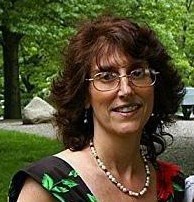 1. Why don't you begin by sharing a little about yourself.
1. Why don't you begin by sharing a little about yourself.
I am the youngest member in a very large family and always felt like I was on the outside looking. To make matters worse my parents got divorced when I was nine, in 1969 before many people were getting divorced so I was again the odd man out. I found myself observing more than participating. I didn't really find my own voice until my writing was published. I have always had the ability to empathize, constantly harboring strays, even if it meant less for me. Writing comes naturally to me and I have been writing since High School. When my first novel came out, Private Scars, I tackled the very difficult subject of domestic abuse and I wrote it from the victim's point of view. From then on I have written what I call "Fiction With a Purpose". My novels deal with social issues that I feel need attention. I try to bring my readers along for the ride from the character's point of view and if at the end of the book the reader puts it down and asks, "Was that real?" I know I did a good job!
I truly believe that ONE person can make a difference and that all things happen for a reason. We are all here for a purpose and I truly hope that the tales I weave are entertaining as well as informative and that the readers garner some sort of hope.
I have always lived in Southern California and I love walking on the beach with my dog and watch the pelicans.
I have 5 published novels: Private Scars, Public Lies, Hidden Truths, Sorrowed Souls and Restored Hope
2. How long have you been writing? Did you always desire to make it your line of work?
I actually started writing when I was in high school with short stories and poetry. I have kept a journal for as long as I can remember. Actually excerpts from my college journals are in Private Scars.
I only wish I could make writing my full time line of work. I actually have a full time job and write in the evenings and on weekends. And I only discovered this 'love' after my children were in high school and no longer needed me on a daily basis. And now I cannot imagine my life without it.
3. Can you tell us about your latest book?
Restored Hope is such a wonderful love story – buried inside a world of tragedy and sorrow. It actually was never supposed to have been written! It all happened as an accident. Samantha Miller is the third child born into a perfect world, but on her 10th birthday that world completely falls apart and her family disintegrates. Six months later she is the only child left and her father does the best he can but it just isn't enough. Later on she meets a wonderful man who has been raised in a perfect family as well but also has issues. Restored Hope teaches us how not to judge others based on what you see; the world is not what it appears.
4. For you, what is the hardest part of writing fiction?
Believe it or not coming up with the names and descriptions of the people. I am so afraid that I am going to make everyone look the same. And I really struggle with names!
5. Can you tell us about your writing process? Where do your ideas originate? Do you have a certain writing routine?
When I start a book I generally have an idea what issue it will revolve around, and I come up with the title first. (I know --- who does that?) Then I let the characters go—the end product is rarely where I had imagined. I do write an outline – Again --- nothing like the end product.
I try to write for at least an hour per night and four hours every weekend. But if I'm not feeling it, I don't force it.
6. What is your greatest challenge as a writer?
I think my greatest 'difficulty' is trying to stay sane when the characters are talking to me. I get to these points when I cannot get them out of my head and I don't want to be anywhere but in front of my computer. That is not really too pleasant for other people.
The other challenge I face is the waiting game. I hate that time between turning it in to the publisher and having the book in my hand.
7. How do you research your books?
Well - - for Sorrowed Souls I immersed myself in the homeless community.
For Disrupted Lives – which is the one I am writing now I have done a great deal of research on the period I am writing about and I have a VERY good friend who was adopted and have used her as a source.
8. What advice would you give beginning writers?
If you are doing this for fame and fortune - - stop!
If you are doing this because it is what you love --- go for it! No one should take away your dream! Don't let the naysayers get the better of you.
9. Who has inspired you as an author?
I really don't have an answer for this one.
10. What's next for you?
I am writing Disrupted Lives which was a suggestion from a reader who asked me if I would ever write a book about someone who had to give up a child at birth because her parents sent her away to have her child. This was done at the end of the 60's and her boyfriend was drafted for the Vietnam War. Needless to say the book has turned into something MUCH BIGGER!
You can check out more about this author on her website: http://brendayoungerman.com/

Interview with Brenda Youngerman:
 1. Why don't you begin by sharing a little about yourself.
1. Why don't you begin by sharing a little about yourself. I am the youngest member in a very large family and always felt like I was on the outside looking. To make matters worse my parents got divorced when I was nine, in 1969 before many people were getting divorced so I was again the odd man out. I found myself observing more than participating. I didn't really find my own voice until my writing was published. I have always had the ability to empathize, constantly harboring strays, even if it meant less for me. Writing comes naturally to me and I have been writing since High School. When my first novel came out, Private Scars, I tackled the very difficult subject of domestic abuse and I wrote it from the victim's point of view. From then on I have written what I call "Fiction With a Purpose". My novels deal with social issues that I feel need attention. I try to bring my readers along for the ride from the character's point of view and if at the end of the book the reader puts it down and asks, "Was that real?" I know I did a good job!
I truly believe that ONE person can make a difference and that all things happen for a reason. We are all here for a purpose and I truly hope that the tales I weave are entertaining as well as informative and that the readers garner some sort of hope.
I have always lived in Southern California and I love walking on the beach with my dog and watch the pelicans.
I have 5 published novels: Private Scars, Public Lies, Hidden Truths, Sorrowed Souls and Restored Hope
2. How long have you been writing? Did you always desire to make it your line of work?
I actually started writing when I was in high school with short stories and poetry. I have kept a journal for as long as I can remember. Actually excerpts from my college journals are in Private Scars.
I only wish I could make writing my full time line of work. I actually have a full time job and write in the evenings and on weekends. And I only discovered this 'love' after my children were in high school and no longer needed me on a daily basis. And now I cannot imagine my life without it.
3. Can you tell us about your latest book?
Restored Hope is such a wonderful love story – buried inside a world of tragedy and sorrow. It actually was never supposed to have been written! It all happened as an accident. Samantha Miller is the third child born into a perfect world, but on her 10th birthday that world completely falls apart and her family disintegrates. Six months later she is the only child left and her father does the best he can but it just isn't enough. Later on she meets a wonderful man who has been raised in a perfect family as well but also has issues. Restored Hope teaches us how not to judge others based on what you see; the world is not what it appears.
4. For you, what is the hardest part of writing fiction?
Believe it or not coming up with the names and descriptions of the people. I am so afraid that I am going to make everyone look the same. And I really struggle with names!
5. Can you tell us about your writing process? Where do your ideas originate? Do you have a certain writing routine?
When I start a book I generally have an idea what issue it will revolve around, and I come up with the title first. (I know --- who does that?) Then I let the characters go—the end product is rarely where I had imagined. I do write an outline – Again --- nothing like the end product.
I try to write for at least an hour per night and four hours every weekend. But if I'm not feeling it, I don't force it.
6. What is your greatest challenge as a writer?
I think my greatest 'difficulty' is trying to stay sane when the characters are talking to me. I get to these points when I cannot get them out of my head and I don't want to be anywhere but in front of my computer. That is not really too pleasant for other people.
The other challenge I face is the waiting game. I hate that time between turning it in to the publisher and having the book in my hand.
7. How do you research your books?
Well - - for Sorrowed Souls I immersed myself in the homeless community.
For Disrupted Lives – which is the one I am writing now I have done a great deal of research on the period I am writing about and I have a VERY good friend who was adopted and have used her as a source.
8. What advice would you give beginning writers?
If you are doing this for fame and fortune - - stop!
If you are doing this because it is what you love --- go for it! No one should take away your dream! Don't let the naysayers get the better of you.
9. Who has inspired you as an author?
I really don't have an answer for this one.
10. What's next for you?
I am writing Disrupted Lives which was a suggestion from a reader who asked me if I would ever write a book about someone who had to give up a child at birth because her parents sent her away to have her child. This was done at the end of the 60's and her boyfriend was drafted for the Vietnam War. Needless to say the book has turned into something MUCH BIGGER!
You can check out more about this author on her website: http://brendayoungerman.com/
Published on October 13, 2010 21:00
October 11, 2010
The Stereotype of Self-publication
Today we have a guest, Robin Cain, author of When Dreams Bleed, discusing the hot topic of self-publication.
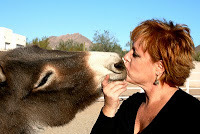 The Stereotype of Self-publication by Robin Cain:
The Stereotype of Self-publication by Robin Cain:
I am a self-published author.
I am stating this upfront to bring attention to some preconceived notions many people have about "traditional publisher rejects". I'm aware that this is what many of you (readers) call us (self-published authors), so why not get it out in the open? I know… you think we couldn't sell our manuscripts, our writing stinks; we don't edit our work. Yada, yada, yada. Much of this is true about some self-published authors; some of it is just plain garbage. On the other hand, much of it is not.
Nowadays, while millions of writers are querying agents each year and not getting through, new avenues of publication are becoming easier, more affordable and making more economic sense. Why wouldn't any new author consider self-publication as a means to an end?
The traditionalists will answer, "Exposure and reputation" and they won't be too far off the mark.
When an author chooses (for whatever reason) to self-publish, he immediately loses the connections that a big-name publisher brings to the table. That is no small loss. Being backed by a Simon & Shuster can go a long way to getting one's books in readers' hands. Additionally, when an author chooses to self-publish, they immediately have the stereotype branding – "self-published: must not be any good". These two items are tough to argue, but…news flash, folks: This is all changing.
With the advent of e-publishing, social networking, online media and book pricing wars, the book selling market is changing – and changing rapidly. The book business, once rationed off in predetermined slices, is now anyone's market. More and more of the "unknowns" are getting a piece of it – a piece which up until now would never have been theirs for the taking. One may or may not be a fan of the Kindle or e-books in general, but their impact on the book-buying market can't be ignored – particularly after Amazon's announcement that Kindle book sales recently surpassed regular book sales for the first time in history.
With an increased market share and greater exposure, it is now possible for a self-published author to attain the same level of success as traditionally published authors - as long as they follow the same rules:
Write quality work
Get it professionally edited
Have it reviewed by a multitude of unbiased readers (and re-write if necessary)
Hire a professional cover designer and formatter
Create a good platform… and then market the hell out of yourself!
Unfortunately, there are a great many writers out there who don't follow these rules and it makes it awfully difficult for those of us authors that did (and do). Regardless, whether traditionally published or not, reputation still has to be built one book at a time.
So how do we get rid of the stereotype and reach those readers who otherwise wouldn't give us a second look? Like any author (super star or rising star), we just hope the cream rises to the top, word-of-mouth does us some favors and generous bloggers (Thanks, Anita!) give us some of their spare space…
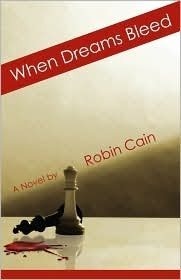 © 2010 Robin Cain, Author of WHEN DREAMS BLEED
© 2010 Robin Cain, Author of WHEN DREAMS BLEED
Robin Lives in Scottsdale, Arizona with her husband, daughter, three dogs, three horses and an adopted donkey named Sophia. As a novelist and regular contributing writer for The Examiner, she spends her days searching for the perfect words to amuse, enlighten and touch her readers. A 3-chapter excerpt of her book, WHEN DREAMS BLEED, can be found on her website, http://www.robincain.com/
Robin's blog: http://robincain.wordpress.com/

 The Stereotype of Self-publication by Robin Cain:
The Stereotype of Self-publication by Robin Cain:I am a self-published author.
I am stating this upfront to bring attention to some preconceived notions many people have about "traditional publisher rejects". I'm aware that this is what many of you (readers) call us (self-published authors), so why not get it out in the open? I know… you think we couldn't sell our manuscripts, our writing stinks; we don't edit our work. Yada, yada, yada. Much of this is true about some self-published authors; some of it is just plain garbage. On the other hand, much of it is not.
Nowadays, while millions of writers are querying agents each year and not getting through, new avenues of publication are becoming easier, more affordable and making more economic sense. Why wouldn't any new author consider self-publication as a means to an end?
The traditionalists will answer, "Exposure and reputation" and they won't be too far off the mark.
When an author chooses (for whatever reason) to self-publish, he immediately loses the connections that a big-name publisher brings to the table. That is no small loss. Being backed by a Simon & Shuster can go a long way to getting one's books in readers' hands. Additionally, when an author chooses to self-publish, they immediately have the stereotype branding – "self-published: must not be any good". These two items are tough to argue, but…news flash, folks: This is all changing.
With the advent of e-publishing, social networking, online media and book pricing wars, the book selling market is changing – and changing rapidly. The book business, once rationed off in predetermined slices, is now anyone's market. More and more of the "unknowns" are getting a piece of it – a piece which up until now would never have been theirs for the taking. One may or may not be a fan of the Kindle or e-books in general, but their impact on the book-buying market can't be ignored – particularly after Amazon's announcement that Kindle book sales recently surpassed regular book sales for the first time in history.
With an increased market share and greater exposure, it is now possible for a self-published author to attain the same level of success as traditionally published authors - as long as they follow the same rules:
Write quality work
Get it professionally edited
Have it reviewed by a multitude of unbiased readers (and re-write if necessary)
Hire a professional cover designer and formatter
Create a good platform… and then market the hell out of yourself!
Unfortunately, there are a great many writers out there who don't follow these rules and it makes it awfully difficult for those of us authors that did (and do). Regardless, whether traditionally published or not, reputation still has to be built one book at a time.
So how do we get rid of the stereotype and reach those readers who otherwise wouldn't give us a second look? Like any author (super star or rising star), we just hope the cream rises to the top, word-of-mouth does us some favors and generous bloggers (Thanks, Anita!) give us some of their spare space…
 © 2010 Robin Cain, Author of WHEN DREAMS BLEED
© 2010 Robin Cain, Author of WHEN DREAMS BLEED Robin Lives in Scottsdale, Arizona with her husband, daughter, three dogs, three horses and an adopted donkey named Sophia. As a novelist and regular contributing writer for The Examiner, she spends her days searching for the perfect words to amuse, enlighten and touch her readers. A 3-chapter excerpt of her book, WHEN DREAMS BLEED, can be found on her website, http://www.robincain.com/
Robin's blog: http://robincain.wordpress.com/
Published on October 11, 2010 12:05
September 19, 2010
My new blog: In the Spotlight
I have some news:
I just started a new blog, called In the Spotlight
I'll be doing post features on movies, TV shows, new DVD's and books.
My first post is a short rundown on my favourite episodes of the show Supernatural .
If any writers out there want a book spotlight, feel free to leave a comment and we'll talk about doing a feature. Book spotlights will need a cover photo, a book blurb, author photo and bio.
Anyway, I hope you like the new blog and check it out.
I just started a new blog, called In the Spotlight
I'll be doing post features on movies, TV shows, new DVD's and books.
My first post is a short rundown on my favourite episodes of the show Supernatural .
If any writers out there want a book spotlight, feel free to leave a comment and we'll talk about doing a feature. Book spotlights will need a cover photo, a book blurb, author photo and bio.
Anyway, I hope you like the new blog and check it out.
Published on September 19, 2010 13:25
September 15, 2010
A blog award has been bestowed, twice!
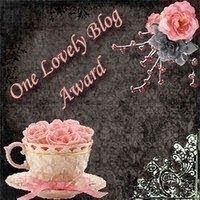 I've been awarded again. The One Lovely Blog award has been bestowed upon me, this time by Jude Roust from Mad about Romance and by Renee Miller of the blog Dangling on the Edge of (In)Sanity.
I've been awarded again. The One Lovely Blog award has been bestowed upon me, this time by Jude Roust from Mad about Romance and by Renee Miller of the blog Dangling on the Edge of (In)Sanity. This is how the award works:
Accept the award, post it on your blog together with the name of the person who has granted the award and his or her blog link.
Pass the award to 15 other blogs that you've newly discovered.
Remember to contact the bloggers to let them know they have been chosen for th...
Published on September 15, 2010 11:13
A blog award has been bestowed
 I've been awarded again. The One Lovely Blog award has been bestowed upon me, this time by Jude Roust from Mad about Romance.
I've been awarded again. The One Lovely Blog award has been bestowed upon me, this time by Jude Roust from Mad about Romance. This is how the award works:
Accept the award, post it on your blog together with the name of the person who has granted the award and his or her blog link.
Pass the award to 15 other blogs that you've newly discovered.
Remember to contact the bloggers to let them know they have been chosen for this award.
I have choosen fifteen blogs I discovered over on Goodr...
Published on September 15, 2010 11:13
September 12, 2010
Vampire Kisses: An Interview with author Elizabeth J. Kolodziej
Today, author Elizabeth J. Kolodziej is stopping by as part of her virtual book tour to talk about her book, Vampyre Kisses, and about writing. And be sure to check out the link at the bottom of the page for her Contest Giveaway.
An Interview with author Elizabeth J. Kolodziej:
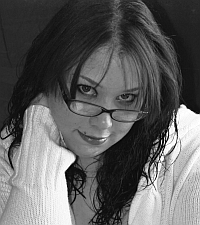 1. Why don't you begin by sharing a little about yourself.
1. Why don't you begin by sharing a little about yourself.
Well, my name is Elizabeth J. Kolodziej (pronounced Ko-La-G). I am a newly self published author. My book is entitled Vampyre Kisses and it is a paran...
An Interview with author Elizabeth J. Kolodziej:
 1. Why don't you begin by sharing a little about yourself.
1. Why don't you begin by sharing a little about yourself. Well, my name is Elizabeth J. Kolodziej (pronounced Ko-La-G). I am a newly self published author. My book is entitled Vampyre Kisses and it is a paran...
Published on September 12, 2010 21:25



